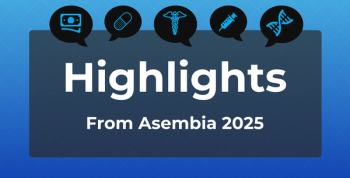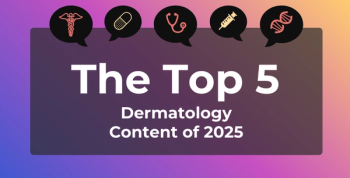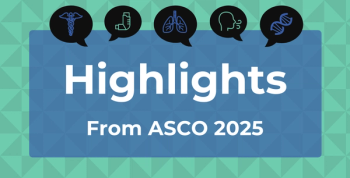
Technology
Latest News

Latest Videos

Podcasts
CME Content
More News

Amrita Basu, PhD, says AI can transform health care by streamlining data, enhancing decision-making, and unlocking insights to improve patient outcomes.

AI revolutionizes pharmacy by automating workloads, enhancing patient care, and navigating drug pricing challenges amid evolving federal policies.

Our top dermatology content of 2025 highlights AI wearables, new biologics, emerging vitiligo treatments, and strategies for rare and complex skin diseases.

Here are our top highlights from AAD 2025 that include safety of topical JAK inhibitors, climate impacts on skin health, affordability of classic therapies, and advancing AI in dermatology.

ASCO 2025 highlighted breakthroughs, including improved cancer survival in key trials, new AI guideline tools, and expanding GLP-1 cancer research.

Studies indicate that ultrasound-based AI models significantly outperform sonographers in diagnosing ovarian cancer.

This study found that certain characteristics in linked electronic health record data across episodes of care can help identify patients with Alzheimer disease and related dementias at high risk of 30-day readmissions.

The conference focused on how to improve eye care across the country, including new methods of treating dry eye and utilizing new technologies to catch myopia earlier.

Industry leaders discuss how policy, pricing, and innovation will shape the future of oncology care and patient access.


Leaders of OneOncology share how the managed services organization empowers independent oncology practices through advanced technology, clinical trials, and value-based care, enhancing patient-focused cancer treatment.

The meeting included new evidence and expert insights on hormone therapy, AI, and the expanding role of GLP-1 therapies in cardiovascular care.

Oncology leaders warn that declining reimbursements and policy gaps threaten patient access and drive inequities in cancer care.

Innovative smart pill bottles significantly enhance adherence to oral adjuvant endocrine therapy in early-stage breast cancer, noted Steven Manobianco, MD.

At SABCS 2025, Amrita Basu, PhD, underscores that effective AI use for breast cancer care depends on human oversight.

Innovative deep proteomic profiling reveals promising results from a blood-based test for early breast cancer, showcasing high sensitivity and specificity, explains Justin Drake, PhD.

Polarized dermatoscopes produced higher-quality teledermatology images but at greater cost, raising questions about feasibility and equitable access.

New research reveals that total social media use does not significantly impact adolescents' body image concerns, challenging previous assumptions.

Shared savings reflects continued growth of long-term-care ACOs in Medicare’s value-based models.

Non-DNMT3A CHIP subtypes raised heart failure risk in a recent analysis, offering new insights for prevention and targeted management.

Svetlana Barbarash, MD, explains how better education, digital monitoring tools, and coordinated care can improve arrhythmia detection and outcomes.

Individuals told their absolute risk of HIV had higher interest in pre-exposure prophylaxis (PrEP) compared with those told relative risk.

Scientists restored the CCNA2 gene in adult human heart cells, enabling them to divide and form new functional cardiomyocytes—advancing heart repair therapies.

An improvement in ophthalmological knowledge was seen compared with older large language models and ophthalmology trainees.

Oncology specialist Jasmine Eugene, PharmD, explains how pharmacists practicing at the top of their license help close cancer care gaps amid provider shortages.
























